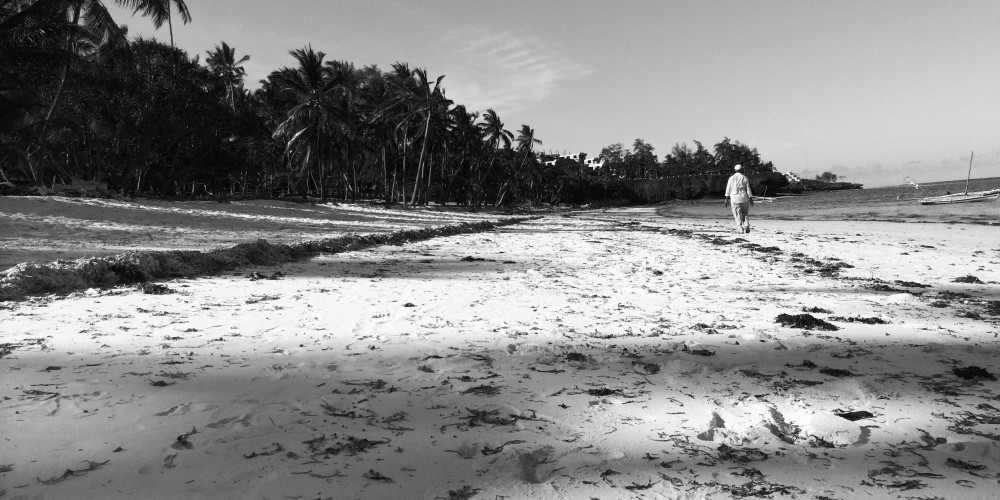Beware of being imprisoned by your past

Ernest Hemingway’s The Old Man And The Sea was probably the first proper work of literature I read in school. Its vivid descriptions of ocean life and the ultimate heartbreak of the old fisherman stayed with me for long afterwards.
I am always drawn to the sea, and for the past few years I have observed another old man at my regular beach haunt. This old man is a beach hawker. He wanders up and down the same beach every single day, trying to peddle the same old thing: wooden keychains with your name carved on them. He has been doing this for as long as I can remember.
It doesn’t really work. Personalised rustic keychains may have briefly found a few buyers decades ago; they don’t really cut it at all in today’s world. The gaunt old man struggles to sell a single item on a given day. He is often reduced to pleading with his buyers to help him out, because a single sale is what decides whether he will get a meal that day. I suspect many of his actual sales are pity buys. I know mine are.
I have thought a lot about that old man’s quandary. It is perhaps better that he still tries to earn a living rather than begging or stealing. It is perhaps understandable that he lacks the nous or the youthfulness to change tack and look for different things to sell. He is uneducated and has only ever known his beach in this world. And yet he should have changed direction many years ago. Not doing so has placed him in a prison of his own making.
He is not alone in that prison, that old man. Some of the shops on the road close by are exactly the same: selling the same old tired and predictable items they were selling a decade ago; displayed in exactly the same way; by the same old uninterested shop assistants. Some of the hotels on that beach are inmates too: their idea of entertainment and cuisine has not been altered for eons. And so the beach is increasingly deserted, leaving everyone to blame terrorism and government inaction for the decline.
Looking beyond the beach and across the country, I see so many in the same trap. Businesses and individuals who seem to believe the world is exactly the same as it was ten years ago, and will be the same ten years from today. A brief period of success seems to be sufficient to send the brain into auto-lock: perhaps the old man sold quite a few keychains in the 1980s; perhaps Kenyan coffee farmers enjoyed a momentary price boom in the 1970s; perhaps a shopkeeper could count on his customers finding parking outside his shop in Nairobi’s business district in the 1990s. But all of that was then. The world moved. Many of the sellers did not.
It is very important that we do not send our children into the same prison. Too many of us have stayed stuck in the same patterns of success – the same locations, the same products, the same service offerings – for too long. We must teach our children something else: the capacity to see what’s coming; the capacity to adapt; the capacity to learn new skills; the capacity to change course.
From where I sit, too few are demonstrating those capacities. Too many can’t see that bank customers will not queue willingly at branches five years from today; can’t see that no one will even touch cash, let alone use it; can’t see that not being present in a customer’s portable computing device will be akin to not existing at all. Those who can’t see this are like my sad old man, and their businesses will look as gaunt as him in a few years’ time.
A few years ago you could not function without a landline and a postal box; these days you have to remind yourself that those things are still present in your life. A few years ago it was inconceivable that formal correspondence could be conducted on something called electronic mail; these days we debate whether instant messaging is not sufficient.
As I become older myself, I am very careful not to stay trapped in the past. Every five years I do a compulsory refresh of my own offerings. A few things are timeless, and stay on; many others are tossed out without any sentiment. It’s something to think about: which part of your past is a prison to escape from?
(Sunday Nation, 12 June 2016)

Buy Sunny Bindra's new book
The X in CX
here »
Popular Posts
- Make this your year of being boringJanuary 4, 2026
- My books of the yearDecember 14, 2025
- Confessions of an explaining personDecember 7, 2025
- Here’s why you should become foolishNovember 30, 2025
- How to listen, really listenNovember 16, 2025















